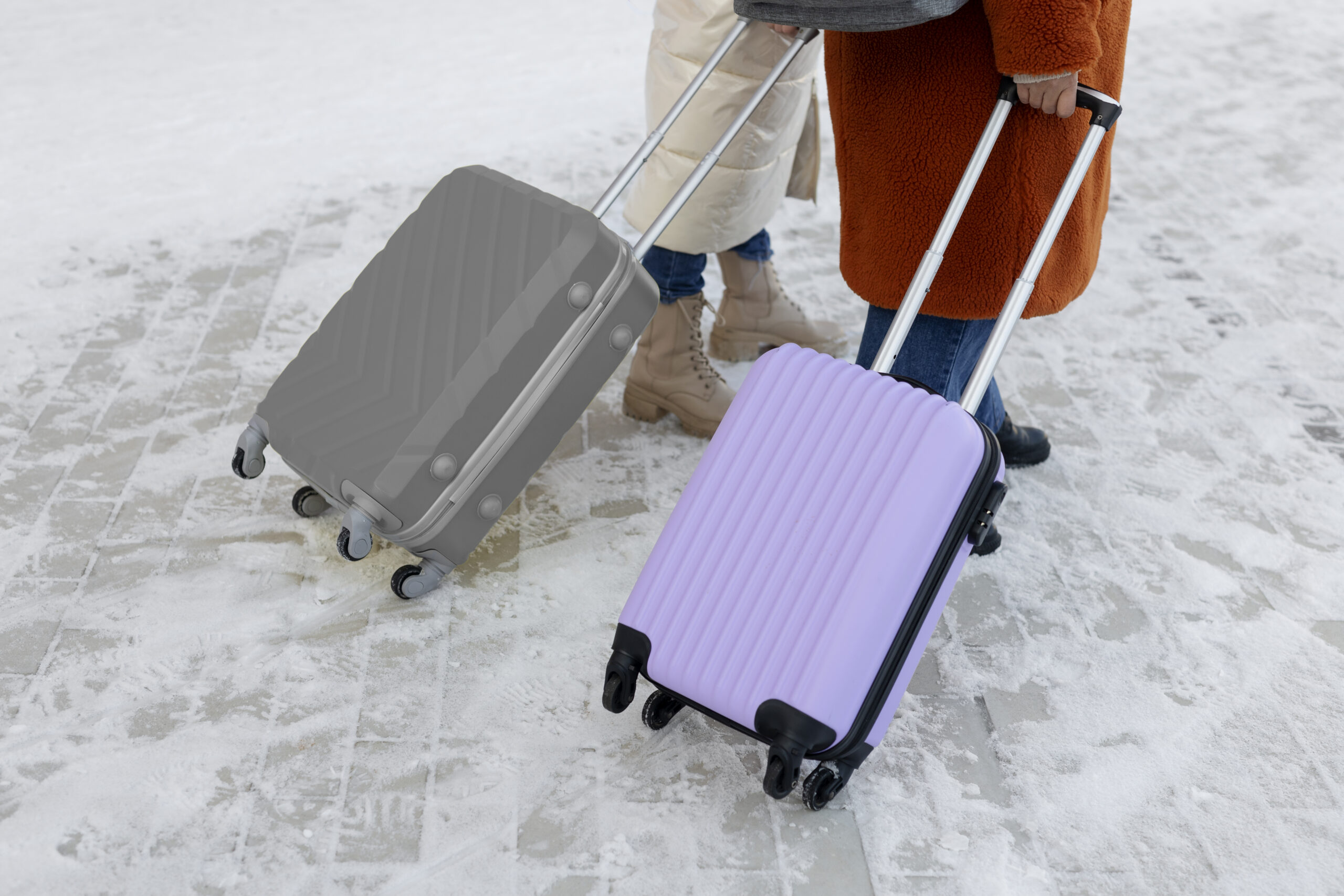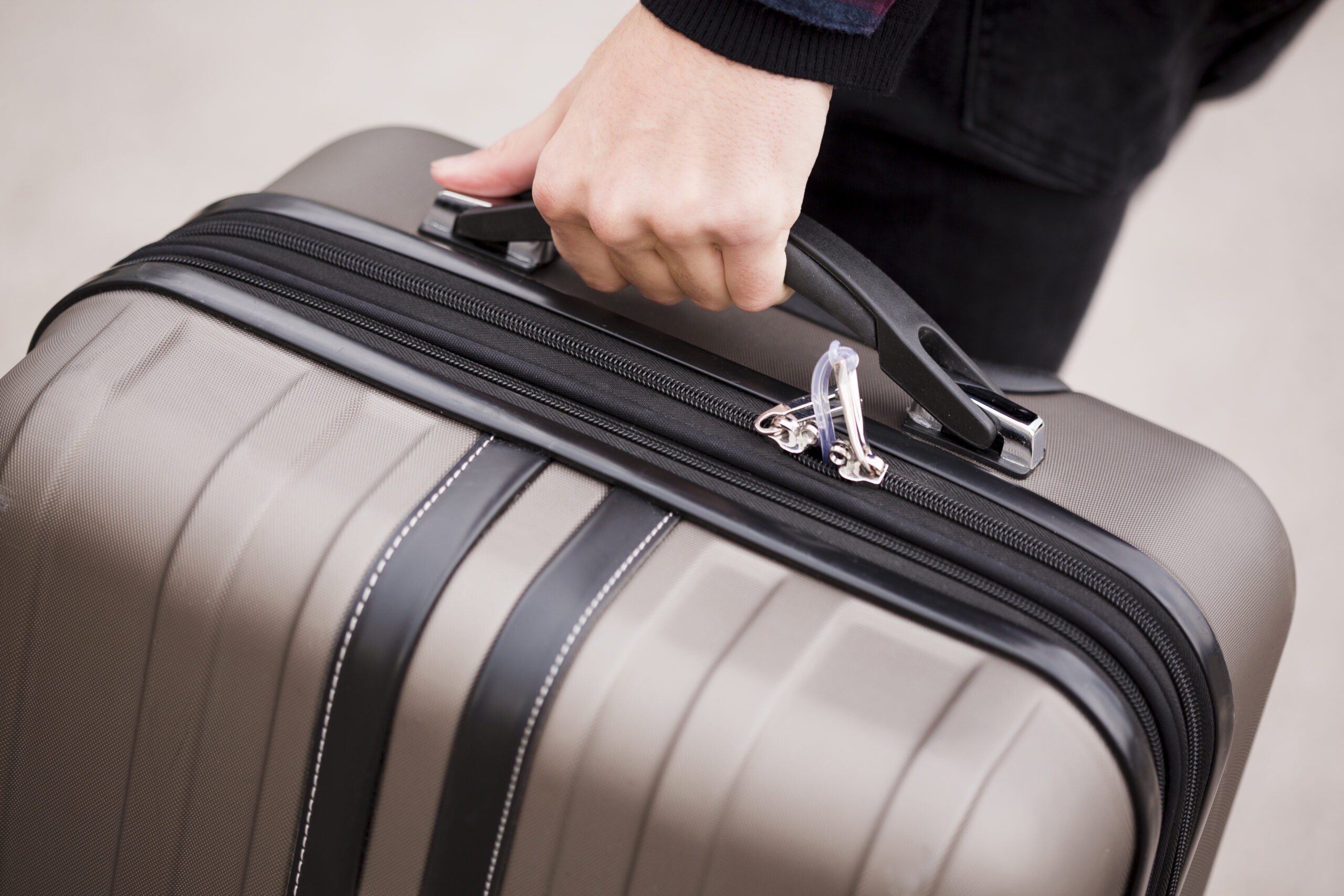Every traveler has experienced it — a jammed suitcase zipper right before a flight or a broken slider halfway through a trip. The truth is, luggage zippers are the most critical moving parts of any travel bag. Whether you’re designing suitcases for an international brand or selecting your own travel gear, zipper strength, materials, and engineering directly determine long-term reliability.
A luggage zipper is not just hardware; it’s the mechanism that holds a traveler’s life together in motion. From cabin pressure to salt spray to baggage handling, zippers must withstand mechanical stress, corrosion, and temperature fluctuations thousands of times over their lifespan. That’s why luggage engineers, OEM manufacturers, and premium travel brands rely on U.S.-made zippers from LenZip. Since 1946, LenZip has specialized in custom luggage zippers that combine tensile strength, material science, and American manufacturing quality — engineered to perform from runway to rainforest.
Types of Luggage Zippers
Luggage relies primarily on three technical zipper types, each offering unique strengths for travel durability and performance:
Metal Zippers: Known for their powerful grip, tactile “lock,” and high tensile strength, metal zippers are common in premium and luxury luggage. They withstand heavy strain and provide a classic aesthetic, though they can corrode if exposed to humidity or marine conditions. Learn more about materials and teeth design in LenZip’s Guide to Zipper Teeth, Sliders, and Their Parts.
Molded Tooth Zippers: Constructed from acetal or resin plastics, these corrosion-resistant zippers are ideal for marine, adventure, or tropical travel gear. Molded zippers interlock directly with the tape, offering a water-shedding structure, impact resistance, and long-term durability for rugged environments.
Coil Zippers: The most common choice for soft-shell suitcases and backpacks, coil zippers are lightweight and flexible. Their spiral-wound nylon or polyester coils curve smoothly around corners and expand slightly under tension — perfect for overstuffed luggage. Explore material comparisons in Zipper Materials & Finishes.
Each zipper type responds differently to travel stresses. Coil zippers favor maneuverability and weight savings; molded and metal styles excel in strength and security. The best luggage designs integrate both — a coil system for internal compartments and a molded or metal chain for external closures.
Understanding Zipper Gauge, Strength, and Load
Zipper gauge refers to the width of the interlocked teeth — typically #5, #8, or #10 on luggage zippers — and directly correlates to load capacity. A #5 zipper is typical for carry-ons and small duffels, while #8 and #10 heavy-duty luggage zippers handle checked suitcases, hard-shell cases, or overpacked gear.
Larger gauges mean higher zipper strength and longer fatigue life. However, precision alignment and slider quality matter as much as size. Locking sliders prevent accidental openings during baggage handling and are vital for tamper-resistant travel zippers.
Refer to LenZip’s Zipper Gauge Chart for exact size-to-strength ratios. All industrial and luggage zippers are tested to ASTM D2061 standards for tensile, fatigue, and corrosion performance. In LenZip’s testing labs, zippers are cycled up to 10,000 open-close repetitions to simulate years of airline use — including compression, impact, and temperature shifts from -20°F to 120°F.
These rigorous tests ensure every zipper chain, slider, and pull performs under pressure. For full details, visit How Zippers Are Tested for Strength, Corrosion, and Fatigue and Zipper Testing Standards.

How Luggage Zipper Testing Ensures Reliability
Most zipper failures occur not because of design flaws, but from skipped testing or inconsistent materials. At LenZip, all luggage zippers undergo ASTM, NFPA, and MIL-SPEC evaluations, ensuring performance far beyond imported equivalents.
Tests include:
- Tensile Strength Testing: Measuring force required to separate the zipper chain under load, simulating overstuffed or compressed luggage.
- Fatigue Cycling: Opening and closing thousands of times to assess slider wear and tooth retention.
- Salt-Spray and Humidity Testing: Replicating corrosion from coastal air or tropical travel.
- Thermal Shock Testing: Exposing zippers to temperature extremes to assess coating stability and polymer flexibility.
Such validation guarantees zipper integrity across the life of a travel bag. ASTM D2061 and NFPA 2112 results confirm that LenZip’s U.S.-made luggage zippers exceed industry norms for zipper durability, corrosion resistance, and slider longevity.
For manufacturers, this data supports warranty claims, brand reputation, and consumer trust. For travelers, it translates into peace of mind — knowing their suitcase closure will survive countless miles of rough handling and varied climates.
Water-Resistant, Tamper-Resistant, and Smart Travel Zippers
Modern luggage must be water-tight, theft-proof, and travel-smart. Water-resistant luggage zippers feature polymer or polyurethane coatings along the tape and teeth, creating a flexible seal that repels rain and spills. Many incorporate storm flaps or hidden coils that prevent moisture ingress during transit.
Tamper-resistant and anti-theft zippers use reinforced slider housings, dual pulls, or locking tabs compatible with TSA locks. These systems not only deter theft but also maintain tension integrity under stress. High-end “smart luggage” even integrates digital lock sensors and tracking devices directly into zipper pulls.
All these designs rely on material innovation. LenZip’s Zipper Coatings and Finishes include corrosion-proof platings, low-friction lubricated tapes, and UV-stable polymers that ensure long-term performance. For ongoing developments in luggage zipper technology, see Textile World, which regularly covers zipper coating advances and travel gear sustainability.
Water-resistant and smart zippers are increasingly standard across outdoor, business, and adventure luggage — an area where LenZip’s custom luggage zippers and precision testing give manufacturers a competitive edge.
Common Luggage Zipper Failures (and How to Prevent Them)
Common travel zipper failures include slider deformation, tooth misalignment, contamination, and tape tearing — usually caused by poor materials or overstuffing. Slider fatigue occurs when metal housings stretch from repeated stress, while teeth misalign when the chain loses tension or foreign particles jam the track.
Inadequate maintenance worsens these issues. Sand, salt, and debris increase friction, especially on coil zippers. Overpacking adds torque at seam junctions, eventually splitting weaker zippers open.
Regular cleaning and lubrication dramatically extend zipper life. Zipper Maintenance & Care recommends silicone spray or wax-based lubricants applied periodically to maintain smooth operation. LenZip’s engineered coatings reduce friction and protect against corrosion, helping zippers stay operational even after years of travel.
Every LenZip luggage zipper undergoes mechanical inspection for slider calibration, chain alignment, and tape tensile rating before shipment — a critical step many offshore factories skip. For OEMs, these controlled manufacturing processes eliminate warranty headaches and ensure uniform quality across production runs.

Why U.S.-Made Zippers Outperform Imports
- Superior Tensile Strength: Manufactured to ASTM zipper strength test standards, LenZip’s closures handle greater pulling force and resist separation under extreme pressure.
- Faster Custom Manufacturing: Local production enables rapid prototyping, color matching, and private-label customization for luggage OEMs.
- Guaranteed Compliance: Each zipper meets ASTM, NFPA, and MIL-SPEC benchmarks for zipper durability and fatigue resistance.
- Sustainable, Traceable Materials: Sourcing from domestic suppliers ensures transparency, lower transport emissions, and eco-responsible finishes.
- Direct Engineering Support: Partnering with LenZip means one-on-one collaboration with zipper specialists — from gauge selection to water-resistant sealing.
Travelers and luggage brands benefit equally from American craftsmanship. U.S.-made zippers offer smoother slider motion, stronger tapes, and corrosion-proof coatings designed for long-term reliability. For comparisons, explore LenZip vs. YKK and discover why American manufacturing provides an advantage in quality and service.
OEMs seeking consistent supply chains should review Why U.S. Zipper Manufacturing Matters for Supply Chain Stability or begin collaboration via Request a Quote.
The Engineering Behind Luggage Zipper Performance
A luggage zipper’s performance is not random — it’s mechanical science in motion. The zipper acts as a load-bearing interface between fabric panels, transferring stress from handles and seams to the chain itself. Engineers evaluate factors like tooth pitch, coil diameter, and slider metallurgy to balance strength and flexibility.
For example, coil zippers may stretch 3–5% under high load, absorbing sudden shocks during baggage drops. Molded and metal zippers provide minimal stretch but higher rigidity, maintaining closure integrity under compression. LenZip’s American-made luggage zippers are calibrated to exact tension tolerances, ensuring consistent travel performance regardless of material or climate.
Custom luggage manufacturers often work directly with LenZip’s engineering team to design bespoke zipper systems that align with brand aesthetics while maintaining ASTM-certified durability.
Closing Thoughts
The zipper may be small, but it determines the success of every journey. A failed zipper can turn a luxury suitcase into a liability, while a strong, heavy-duty luggage zipper guarantees confidence and protection mile after mile.
Choosing U.S.-made luggage zippers from LenZip means investing in proven tensile strength, corrosion-resistant coatings, and ASTM-certified engineering. Whether you design travel gear or depend on it daily, LenZip delivers closures built to endure thousands of miles — keeping travelers moving, brands trusted, and belongings secure.
Explore more zipper options for travel reliability in Top Picks for a Smooth Journey.
FAQ
What type of zipper is best for luggage?
The best zippers for suitcases balance flexibility and strength. Coil zippers offer bend and light weight, while molded zippers provide impact and corrosion resistance. For luxury or business travel, metal zippers add a polished finish with high tensile capacity. LenZip’s luggage zippers are engineered to combine these benefits with custom finishes and coatings.
Are water-resistant zippers worth it for travel bags?
Absolutely. Water-resistant luggage zippers protect valuables from spills, rain, and damp cargo holds. They use coated tapes or hidden coils that seal moisture out. LenZip’s coatings and finishes ensure long-term water resistance and corrosion resistance ideal for global travelers.
How can I tell if my luggage zipper is high quality?
High-quality luggage zippers feature even, interlocked teeth, smooth slider travel, reinforced tapes, and ASTM certification. Look for American-made zippers from LenZip, backed by in-house testing and material traceability.
How are luggage zippers tested for durability?
Durability is measured using ASTM D2061 tensile and fatigue tests, NFPA 2112 flame standards, and real-world stress simulations. LenZip’s testing process verifies zipper performance under repeated load, abrasion, and environmental exposure.
Why choose a U.S.-made luggage zipper manufacturer like LenZip?
U.S.-made zippers ensure superior quality, consistency, and supply reliability. LenZip combines decades of engineering experience, sustainability, and rapid customization — outperforming offshore suppliers in precision, durability, and customer service.
